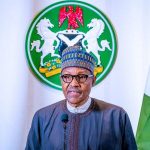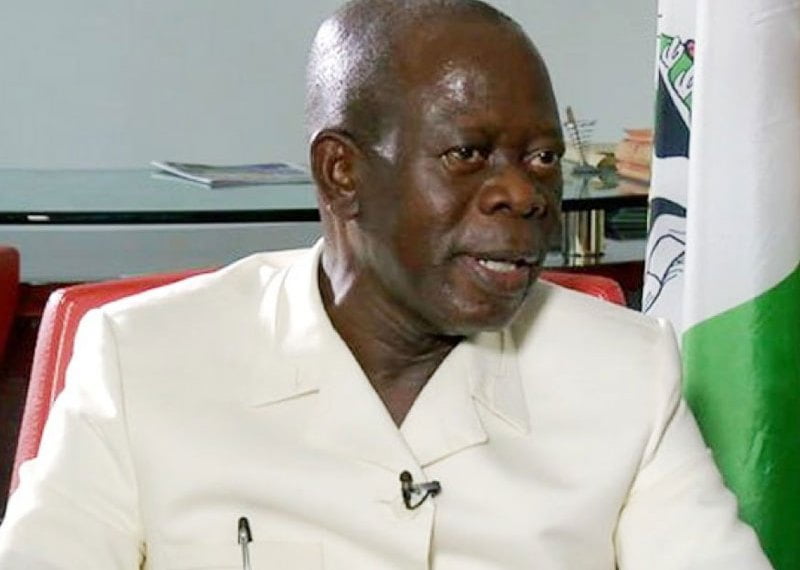The United Nations Children’s Fund, UNICEF, Friday disclosed that over 46 million Nigerians still practice openn defecation despite its health hazard.
The Chief of UNICEF Field Office Enugu, Dr. Ibrahim Conteh made this known at a One-Day Media Dialogue in commemoration of the 2021 World Toilet Day with the theme; Valuing Toilets, organized by UNICEF in collaboration with the Broadcasting Corporation of Abia State, BCA.
epresented by Mrs. Maureen Zubie-Okolo, the Planning Specialist, UNICEF Field Office Enugu, Dr. Conteh expressed dismay that Nigeria was making limited progress in the area of provision of toilets for the people with 23 percent of Nigerians defecating in the open.
He said: “According to new figures soon to be released on Nigerians’ access to water, sanitation and hygiene services, the rate of open defecation in Nigeria has remained steady at 23 percent. As many as 46 million Nigerians still defecate in the open.
“The states with the highest rates of open defecation are: Kwara, Plateau, and Ebonyi. Those with the lowest rates are: Abia, Zamfara, and Akwa Ibom.
“There has been some progress on ending open defecation, with 71 out of Nigeria’s 774 local government areas now declared ‘Open Defection-Free, ODF, up from 18 in 2019. The states with the highest number of ‘open defecation-free’ LGAs are Katsina, Jigawa and Benue – with 21, 18 and 9, respectively.
“Nigeria is making some progress in improving access to water, sanitation and hygiene services to its population, with 75 per cent of Nigerians having access to basic drinking water services, up from 70 per cent in 2019.
“Access to sanitation (toilet and handwashing facilities) has also increased modestly, from 44 per cent to 46 percent over the same period.”
Quoting Peter Hawkins, the UNICEF Representative in Nigeria, Dr. Conteh said: ‘It is clear that more needs to be done to ensure that all Nigerians have access to safe toilets and that we shift closer to ending open defecation across the country.
‘With the Clean Nigeria campaign, we are making strong efforts, but the whole country needs to put their full weight behind this campaign. We cannot afford to fail; ending open defecation is crucial to making progress in so many other areas, including health.
‘In November 2018, President Buhari declared a state of emergency in the Water, Sanitation, and Hygiene, WASH, sector and launched a national campaign tagged ‘Clean Nigeria: Use the Toilet’ to jump-start the country’s journey towards becoming open defecation-free by 2025.
“There is a clear commitment by the Nigerian government to helping the population to move away from the practice of open defecation; a move that will help support better health outcomes for all, including especially children.
‘The importance of adequate and safe sanitation and proper hand hygiene practices cannot be overstated. It helps prevent illnesses that impact families’ livelihoods, and more importantly, take the lives of far too many children. We can and must achieve an open defecation-free Nigeria by 2025,’ Peter Hawkins was quoted as saying.
While introducing the meeting objectives, the Communication Officer, UNICEF Enugu, Dr. Ijeoma Onuoha-Ogwe said it was to engage and equip journalists from the Enugu Field Office states with the recent data on WASH with reference to provision of toilets and population’s access to toilets, progress being made towards achieving the Sustainable Development Goals, SDGs, target by 2030 among others.”
She noted that the dialogue would also help journalists develop action plans to pitch stories that will motivate governments, communities/families to value toilets.
In his presentation titled the Situation of Toilet Usage by Nigerians and Implications, the WASH Specialist UNICEF Enugu, Mr. Doutimiye Kiakubu called on governments at all levels to provide better funding to drive the vision to achieve the ODF vision across the country.
Mr. Kiakubu noted that the sanitation value chain is business on its own.
Continuing, Mr. Kiakubu said: “We are talking about 46 million people practicing open defecation in Nigeria. Of that figure Abia is contributing about 76,000, Anambra is contributing about 391,000, Benue about 2.6million, Cross River is contributing about 709,000, Ebonyi is contributing about 1.7million, Enugu is contributing about 1.7million, Imo is contributing 620,000 and Kogi is contributing 2.4million. So you can see the volume of work each state needs to do to achieve ODF Nigeria by 2025.
“I want to encourage those who have opportunity to influence policies and bring issues to the front burner in the media that this should not just be mere talk.
“We should begin to make budgets based on evidence and data. To begin to deal with the issues that are plaguing the population.
“Let me also point out here that many times when we ask if it is possible to achieve ODF status, I want to look at it in the context of government funding. If you look at the LGAs that have attained ODF majority of that is donor funding. The truth is that any state that is depending on donor funding to achieve statewide ODF will not be able to achieve it.
“If you are not making efforts on your own to achieve it and then others come to support you; if you are waiting on donors alone you may not make it. And that is the challenge I have for Benue, the nine ODF LGAs they have are all donor driven ODF LGAs.
“How much investment is the government making in sanitation? How much investment is the government making to ensure that the pledge for Benue to become statewide ODF in 2025 will be achieved? That is the question that must be taken to the policy makers.
“For Cross River, that state was one of the leading states for sanitation. Obanliku LGA was the first LGA to become ODF in Nigeria. And the state started on a very high note, they achieved six ODF LGAs. But what happened? Setback, and for how long it has been on six.
“Ebonyi has 13 LGAs but non of them is LGA wide ODF and there is no work going on in any of them. In Enugu we have 17 LGAs, work is going on in one of them the others may not have work going on but the good news for Enugu is that we are sure of the political will and commitment to be able to drive this. And we are going to work with them to ensure that it happens. For Imo it’s still zero out of 27, no ODF LGA. For Kogi no LGA ODF and it is in only one that work is going on.
“You will agree with me now that indeed there is sanitation crisis and there is a new emergency in our hands.
“Even though sanitation is a human right recognized by the United Nations, we urgently need massive investment and innovation to make sure that we increase progress along the sanitation chain; and to make sure no one is left behind. Our policy makers must see these evidence and data that will inform planning and progress as we get towards ODF Nigeria 2025.”
Earlier in his opening remark, the Special Adviser to the Enugu State Governor on Water Resources, Mr. Anthony Onyia noted that the dangers posed to the health of Nigerians by the practice of open defecation was enough reason for the intensification of the campaign against open defecation in the country.
He stated that the state government had picked up the challenge to ensure that the issue of ODF was addressed headlong and completely eradicated in the state in the shortest possible time.
In a presentation titled Valuing Toilets and Tackling the Global Sanitation Menace; Mr. Sam-Adejoh Okedi, a WASH Sector Independent Consultant reiterated that Nigeria “is in a crisis situation when sanitation is concerned. This is so because we are number one in open defecation globally, that is even why it is a bigger crisis.”
He noted that “we have 774 LGAs in the country and we are in 2021. And as at today only about 71 LGAs are ODF. So we have moved just about 10 percent of the LGAs in the country to be ODF. It is a challenge but is the 2025 target Nigeria has set for itself achievable? It is achievable, the problem is if it is doable.”
Mr. Okedi identified big financial support gap, lack of requisite technology, lack of priority on the side of the populace and the government, and the need for intensified campaigns on the use of toilets and huge investment potentials in the toilet business as some areas that needed special attention if the 2025 target would be achieved.
He also canvassed the need for market based approach that would see the private sector drive the vision in place of the programme based approach to galvanize the actualisation of 2025 nationwide ODF vision. He advised also that UNICEF and the media form a partnership that would aid the drive.
VANGUARD




